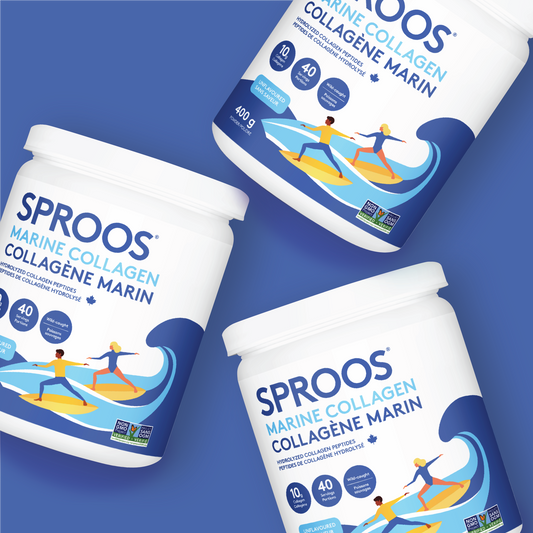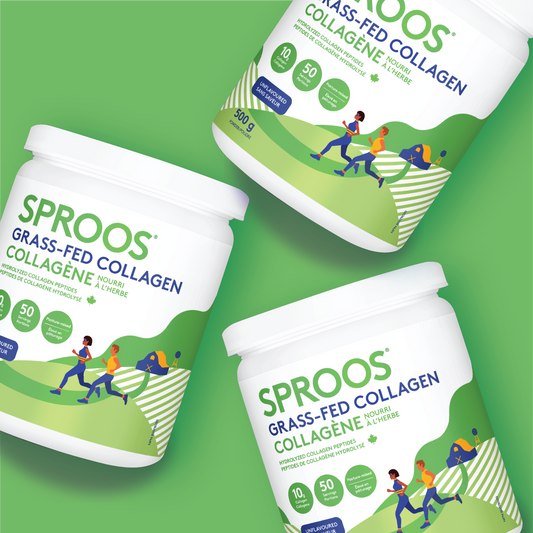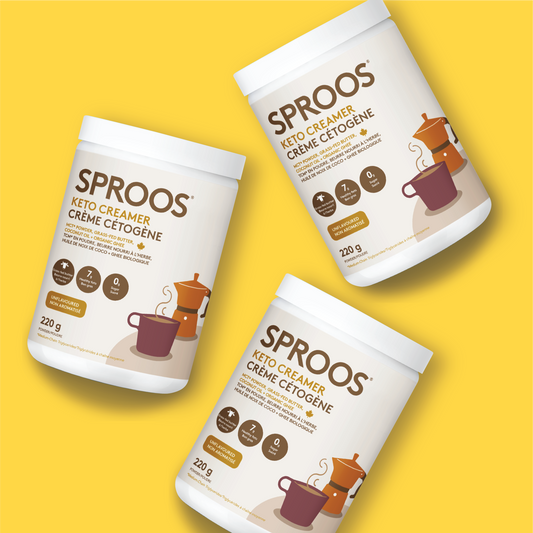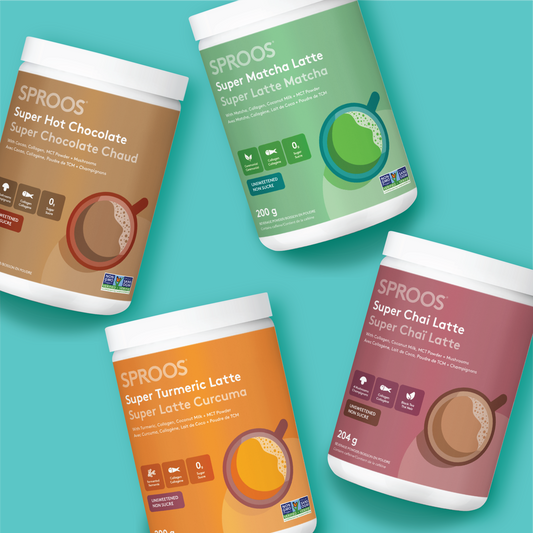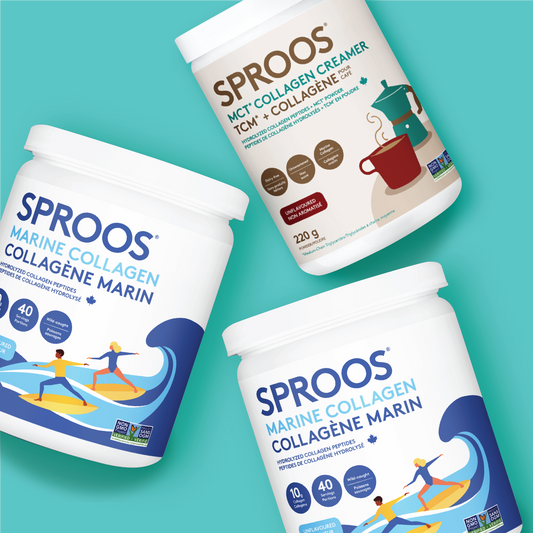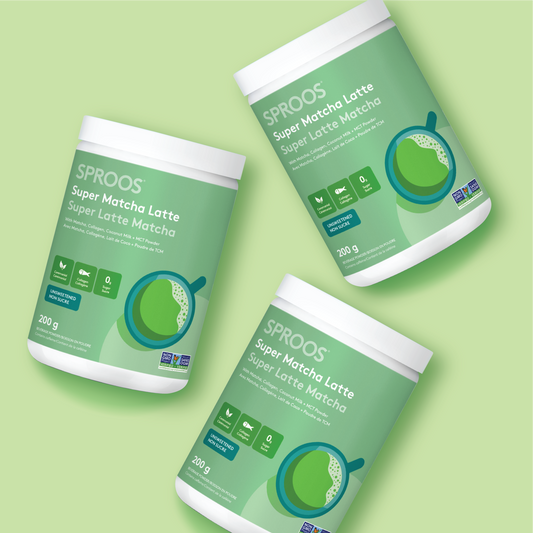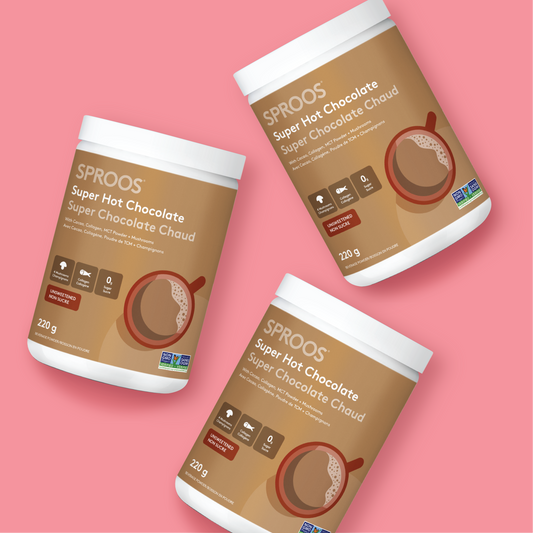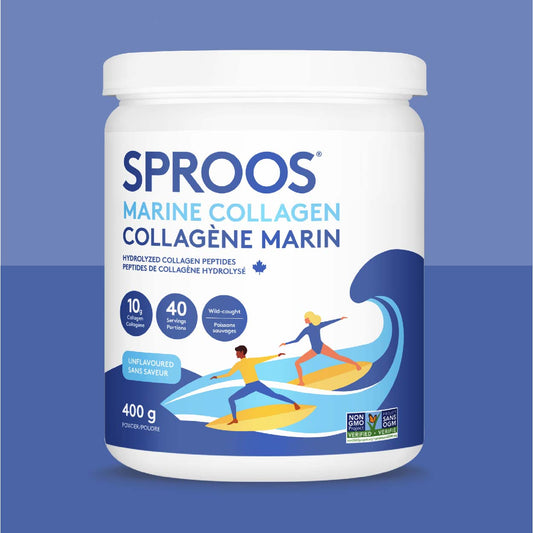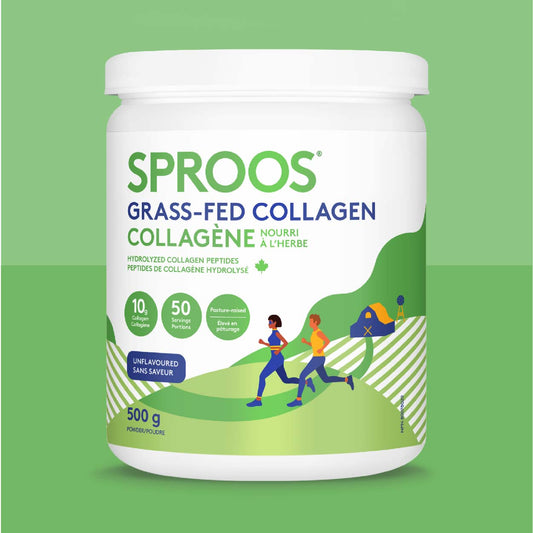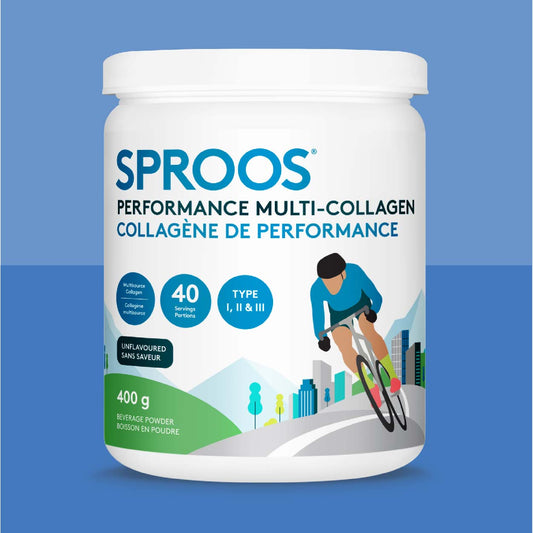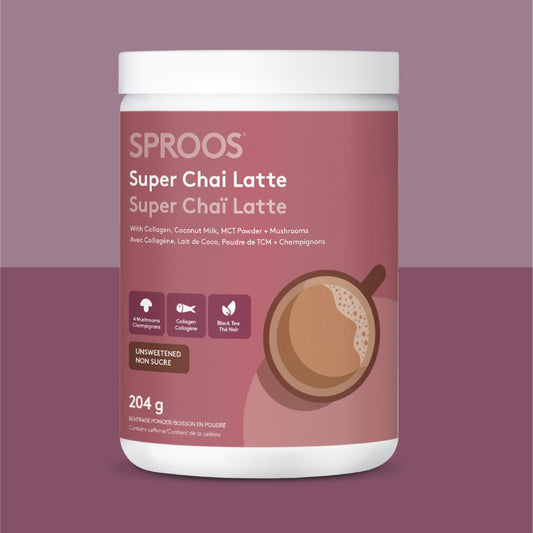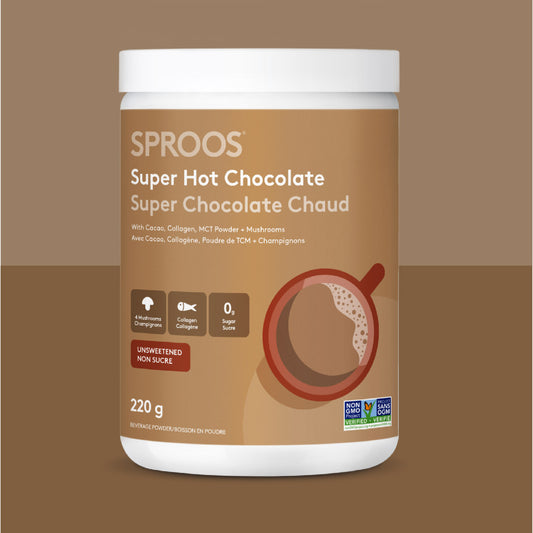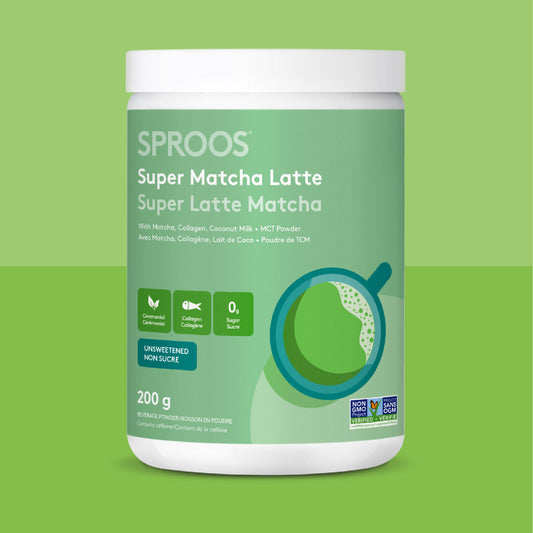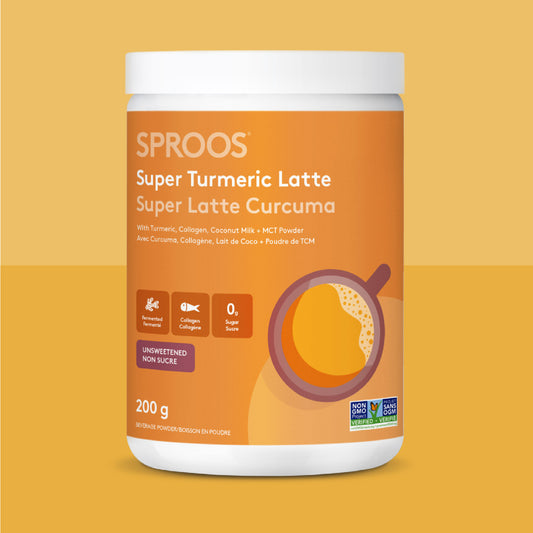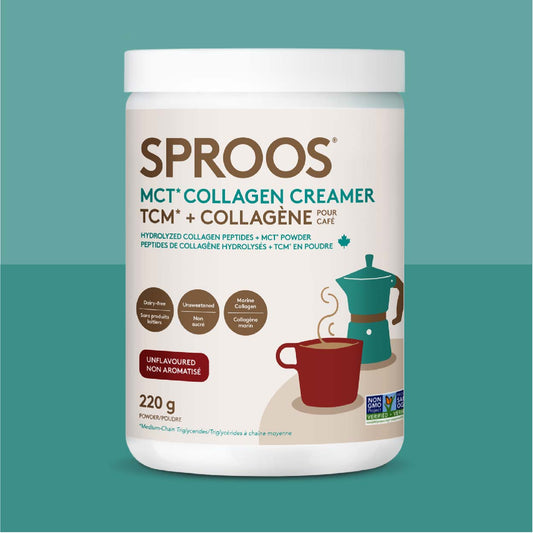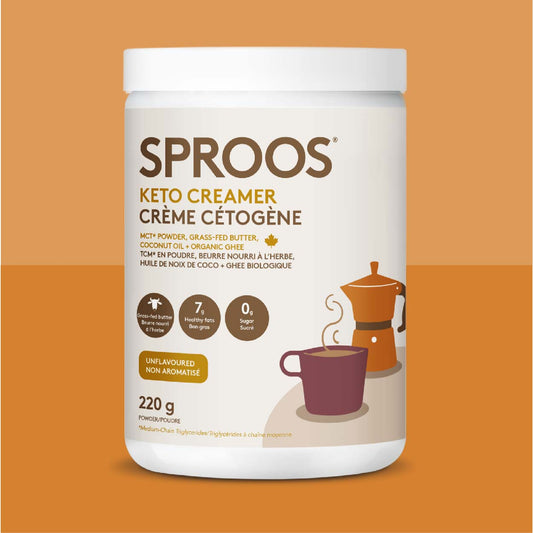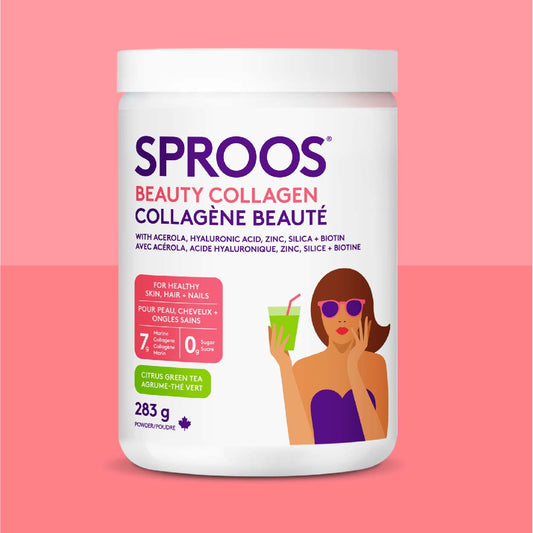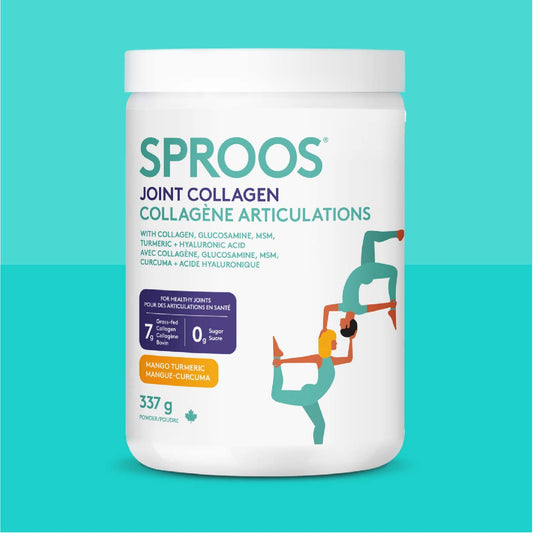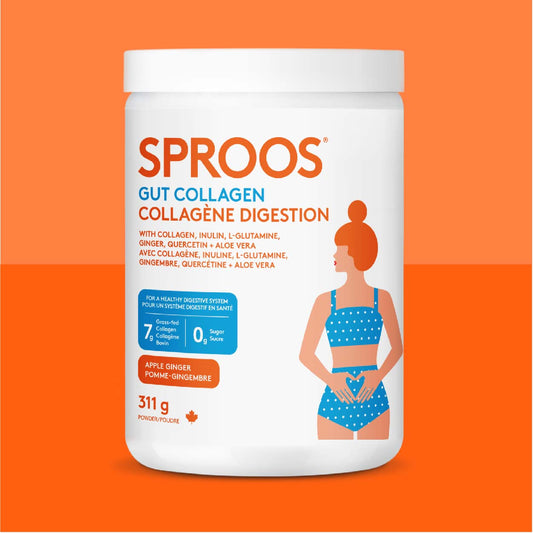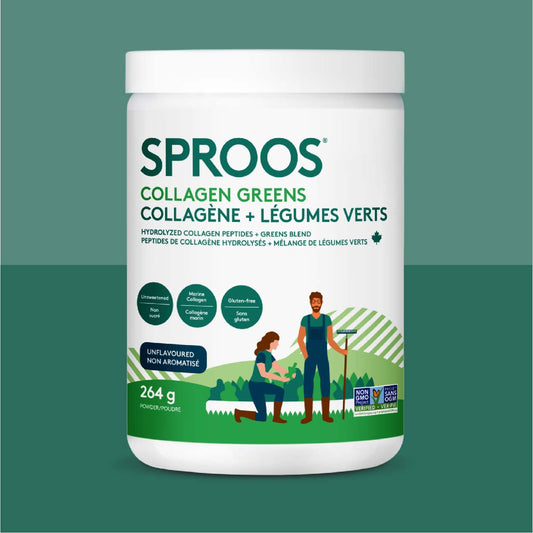Top 6 Science-Backed Collagen Benefits
1. Improves the Appearance of Skin
Let's start with the big health benefit of collagen: skin. Some might consider this collagen's claim to fame, and for good reason. Collagen is a major component of skin, and is responsible for providing skin with elasticity, hydration and structure. Taking collagen has increased skin moisture and elasticity, and reduced signs of aging after only 8 weeks. Collagen also promotes the growth of skin cells, increases hyaluronic acid production in the skin, and improves dry and rough skin. If that doesn't convince you about the health benefits of collagen for skin, a meta-analysis - a type of analysis that combines information from many, many studies - also looked at the effects of a collagen supplement on aging skin. This analysis included over 1100 participants between the ages of 20 and 70 years old. They found that at least 90 days of taking a collagen supplement was effective in reducing wrinkles in the skin. It also improved skin elasticity and hydration, and reduced signs of aging in facial skin. Not only can collagen help by promoting a more youthful appearance of skin (who wouldn't want that!), but there has been evidence to suggest that it can help with acne and eczema too.
2. Reduces Joint Pain and Supports Joint Health
Our joints are made up of collagen, so it is no surprise that collagen can benefit our joints. Collagen can decrease joint pain, support joint health, and reduce the risk of joint deterioration. How does that work? Well, the amino acids present in collagen supplements are specific to joint cartilage. Collagen benefits our joints when we consume a collagen supplement. The amino acids in the collagen supplement accumulate in the joint cartilage. This stimulates the production of cells that help to maintain the structure and function of our joints. A study done on athletes found that collagen could decrease joint pain following physical activity. It was also suggested that collagen could reduce the risk of joint deterioration in frequently used joints. This was when regularly taking a collagen supplement. A review of various studies looked at the effect of collagen on different joint disorders. Most people reported a decrease in joint pain and a general improvement to their condition. Participants took a daily collagen supplement for at least 4 consecutive weeks. These findings suggests that consistent collagen supplementation can provide many benefits for those with joint related concerns.
3. Bone Structure and Strength
Collagen is a major structural element in bones, providing bones with skeletal toughness. This means that collagen helps to provide resistance against physical stress that our bones endure day in and day out. As we age, not only does our collagen production decrease, but so does our bone mass and density. This makes it very important for us to do everything in our power to improve our bone health. Studies have found the collagen supplements can increase bone mineral density and strength. Collagen can decrease the rate of bone loss which is important as we age. Also, supplementing with collagen can also promote bone turnover, favouring the formation of new bone. There have been studies done with people suffering from osteoarthritis. There has been success in using collagen supplements to soothe pain in these people. The conclusion? Collagen is an important player in the formation and maintenance of strong and healthy bones. It is also an important supplement when considering those suffering with skeletal diseases.
4. Recovery From Physical Activity
You just worked out. As you take time to rest, consider incorporating collagen into your post-workout routine. The collagen benefits post-workout are still an emerging area of research. However, there are promising preliminary findings that warrant more research. A study in men aimed to determine the effects of collagen peptides supplementation and resistance training on body composition. They measured their strength and looked at their muscle fibres. They found that those taking a collagen supplement had a higher fat-free mass and a better body composition (more muscle mass, less fat mass!) compared to those not taking collagen. This demonstrates that there are potential collagen benefits post-workout. Even if these findings are still in their early stages, we know that collagen provides benefits to our joints and bones. Physical activity, whether light or intense, puts stress on our joints and bones. We just discussed the benefits of collagen to our joints and bones. So, if not for the recovery aspect, taking a collagen supplement would still provide some benefits post workout for those reasons.
5. Gut Health
There are many health benefits of collagen, and gut health is one of them. Ever heard of leaky gut syndrome? It's when the cells that line your intestines begin to separate slightly allowing for bacteria to pass through and enter the bloodstream. This can cause things like bloating, fatigue and inflammation. We've learned that there is a connection between the gut and the brain. A healthy gut contributes to a healthy mind and vice versa. A leaky gut isn't a healthy gut, and collagen has the potential to help with that. In fact, a study found that intestinal barrier dysfunction was decreased by marine collagen. This was because the collagen worked to decrease inflammatory signals in the gut that were causing this dysfunction to occur.
6. Quality Sleep
Remember when we talked about amino acids that make up collagen? Well, it turns out that glycine (one component of collagen) can help us with sleep! Consuming glycine before bedtime has shown to improve sleep quality in people suffering from insomnia. We also know that when we sleep, our core temperature decreases. Another study found that consuming glycine before bed significantly decreased core body temperature. This could explain how and why glycine consumption before bed helps with sleep. Not sure how to incorporate collagen in your nightly routine? Try adding a scoop to your tea or other warm drink before bed. This might help with a better night's sleep!The Takeaway:
The health benefits of collagen are abundant. Whether you are interested in the beauty benefits of collagen or the joint and bone benefits, there's a product out there for you. Figuring out what health concern you want to tackle with collagen is one of the first steps in deciding on a product that's right for you. If you've been taking collagen for a while, then you've found yourself six new reasons to continue taking your collagen supplement.
References
- Bannai, M., & Kawai, N. (2012). New therapeutic strategy for amino acid medicine: Glycine improves the quality of sleep. Journal of Pharmacological Sciences, 118(2), 145-148.
- Bello, A. E., & Oesser, S. (2006). Collagen hydrolysate for the treatment of osteoarthritis and other joint disorders:a review of the literature. Current Medical Research and Opinion, 22(11), 2221-2232.
- Chen, Q., Chen, O., Martins, I. M., Hou, H., Zhao, X., Blumberg, J. B., & Li, B. (2017). Collagen peptides ameliorate intestinal epithelial barrier dysfunction in immunostimulatory Caco-2 cell monolayers via enhancing tight junctions. Food & Function, 8(3), 1144-1151.
- Choi, S. Y., Ko, E. J., Lee, Y. H., Kim, B. G., Shin, H. J., Seo, D. B., Lee, S. J., Kim, B. J., & Kim, M. N. (2014). Effects of collagen tripeptide supplement on skin properties: A prospective, randomized, controlled study. Journal of Cosmetic and Laser Therapy, 16(3), 132-137.
- Clark, K. L., Sebastianelli, W., Flechsenhar, K. R., Aukermann, D. F., Meza, F., Millard, R. L., Deitch, J. R., Sherbondy, P. S., & Albert, A. (2008). 24-Week study on the use of collagen hydrolysate as a dietary supplement in athletes with activity-related joint pain. Current Medical Research and Opinion, 24(5), 1485-1496.
- Daneault, A., Prawitt, J., Soul V. F., Coxam, V., & Wittrant, Y. (2017). Biological effect of hydrolyzed collagen on bone metabolism. Critical Reviews in Food Science and Nutrition, 57(9), 1922-1937.
- Inoue, N., Sugihara, F., & Wang, X. (2016). Ingestion of bioactive collagen hydrolysates enhance facial skin moisture and elasticity and reduce facial ageing signs in a randomised double-blind placebo-controlled clinical study. Journal of the Science of Food and Agriculture, 96(12), 4077-4081.
- Kawai, N., Sakai, N., Okuro, M., Karakawa, S., Tsuneyoshi, Y., Kawasaki, N., Takeda, T., Bannai, M., & Nishino, S. (2015). The Sleep-Promoting and Hypothermic Effects of Glycine are Mediated by NMDA Receptors in the Suprachiasmatic Nucleus. Neuropsychopharmacology, 40(6), 1405-1416.
- Kirmse, M., Oertzen-Hagemann, V., de Marées, M., Bloch, W., & Platen, P. (2019). Prolonged Collagen Peptide Supplementation and Resistance Exercise Training Affects Body Composition in Recreationally Active Men. Nutrients, 11(5), 1154.
- Miranda, R. B. de, Weimer, P., & Rossi, R. C. (n.d.). Effects of hydrolyzed collagen supplementation on skin aging: A systematic review and meta-analysis. International Journal of Dermatology, n/a(n/a).


